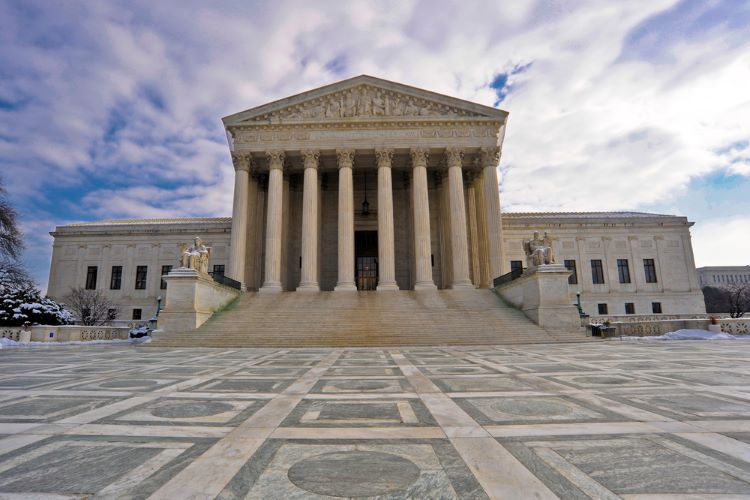Law Professors
Is SCOTUS making it harder to teach constitutional law? Profs ‘depleted’ and taken aback by ‘velocity’ of change
The U.S. Supreme Court’s “hard-right supermajority” is using the doctrine of originalism to overturn established precedent, making it difficult for constitutional law professors grappling with rapid change that they think is unprincipled. (Image from Shutterstock)
The U.S. Supreme Court’s “hard-right supermajority” is using the doctrine of originalism to overturn established precedent, making it difficult for constitutional law professors grappling with rapid change that they think is unprincipled, according to an article in the New York Times.
The New York Times spoke with several constitutional law professors, including professor Rebecca Brown of the University of Southern California.
“While I was working on my syllabus for this course, I literally burst into tears,” she told the New York Times author. “I couldn’t figure out how any of this makes sense. Why do we respect it? Why do we do any of it? I’m feeling very depleted by having to teach it.”
“What feels different at this moment,” said Barry Friedman, a professor at the New York University School of Law, “is the ambition and the velocity, how fast and aggressively it’s happening.”
As an example, the New York Times pointed to the June 2022 Supreme Court decision in New York State Rifle & Pistol Association v. Bruen, which found a Second Amendment right to carry a handgun for self-defense outside the home.
According to the New York Times writer, the decision “featured the right-wing justices playing amateur historians, cherry-picking and distorting evidence from decades or centuries ago in order to justify their existing opinions.”
Erwin Chemerinsky, the dean of University of California at Berkeley School of Law and an ABA Journal contributor, addressed the same topic in a March 2022 podcast. One of the guests was Jeffrey Abramson, a professor at the University of Texas who was teaching law students and undergraduates.
“I think we’re on the cusp of a disaster. I think we’re seeing almost a virtual collapse of the ability to teach con law as law,” Abramson said.
“I started this semester with Marbury v. Madison, as almost all of us do,” Abramson said. “I traditionally played devil’s advocate with judicial review. I didn’t have to. Before I had gotten 20 sentences out of my mouth, the students were already asking whether judicial review, both historically and today, serves any democratic purpose.”
Abramson also has students read a Franz Kafka story about a man from the country who finds a gatekeeper who won’t allow him to gain entry into the law.
“It’s a long story about whether there is a law inside that the doorkeeper is keeping students from getting into, or whether there is nothing in there, that it’s all a charade, it’s all a magic trick. They’re only doorkeepers and doorkeepers and doorkeepers.”
In the past, students believed in the law and thought that there was a difference between the law and its agents, who could be faithful or corrupt, Abramson said. But now, his students “share this vast cynicism” that there are only gatekeepers, and “there is no such thing as the law.”
Will Baude, a professor at the University of Chicago Law School, offers a different perspective at the Volokh Conspiracy, where he cited his presentation at a symposium that he has posted to SSRN.
There is a perception that teaching constitutional law is more difficult because the Supreme Court has been doing so many things so quickly. But the perception is wrong, Baude said.
The Supreme Court “has long been engaging in awe-inspiring power grabs,” he said, citing cases with liberal results on abortion, same-sex marriage, desegregation and the rights of criminal defendants.
“The court has always been making questionable calls in high-profile cases, likely for a mix of political reasons and genuine differences of opinion about the nature of the Constitution,” Baude wrote. “What has really changed is not that the court is newly imperial or newly lawless or newly political. What has changed is that many more folks inside the Ivory Tower have noticed and no longer see their values and ways of thinking represented as often by the court.”
